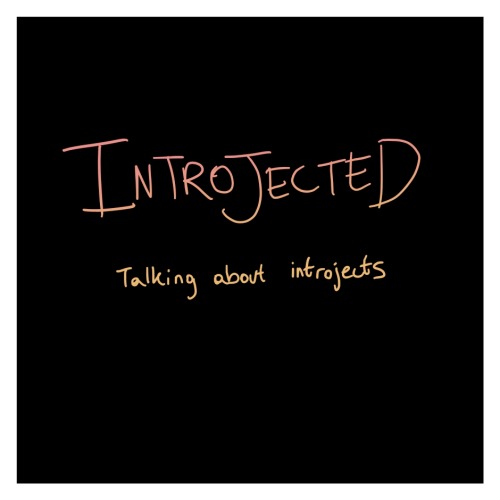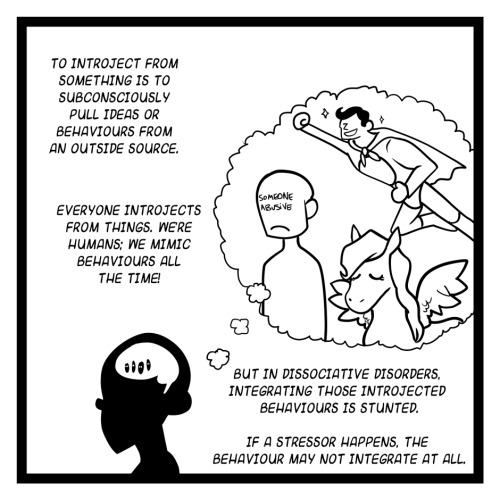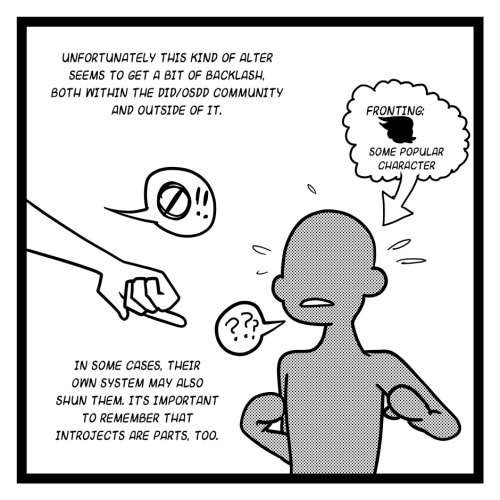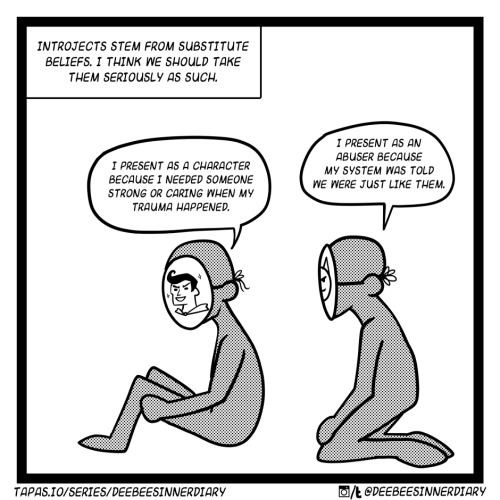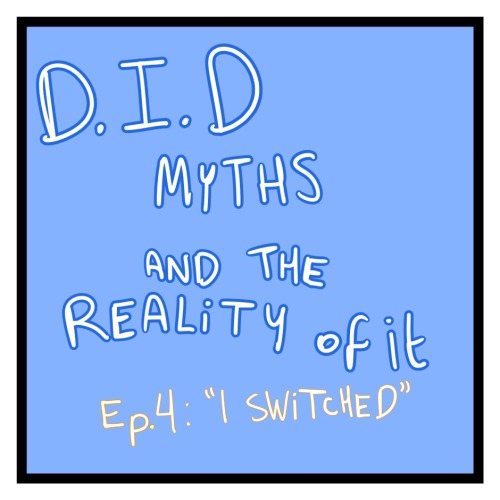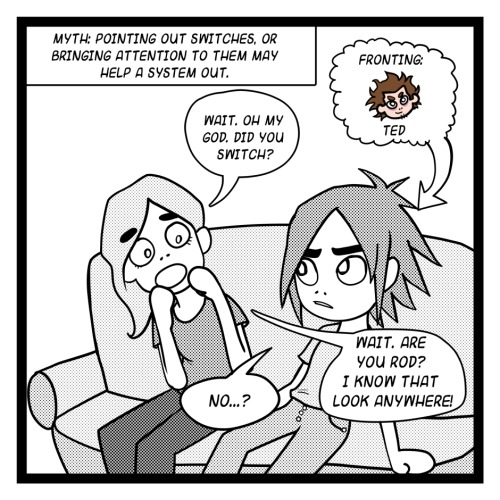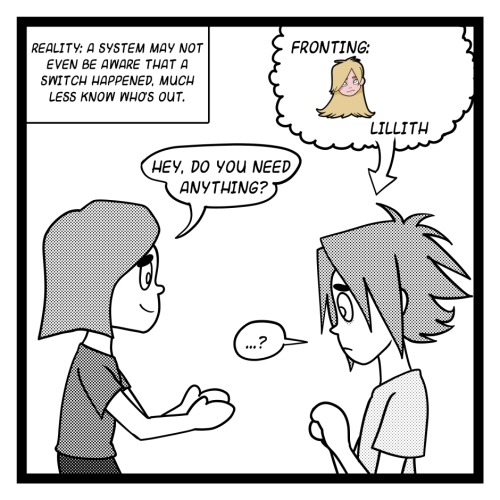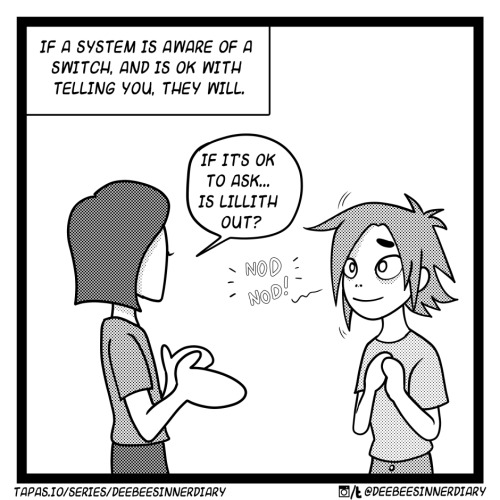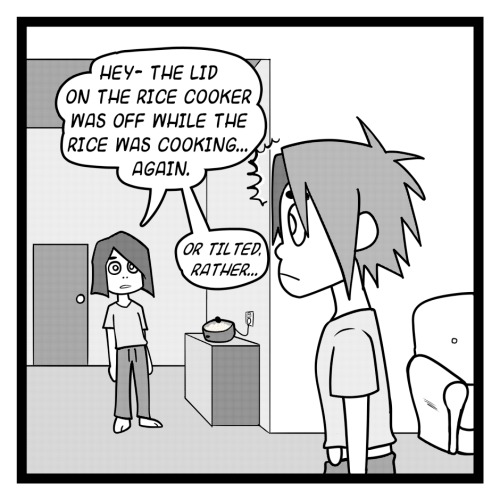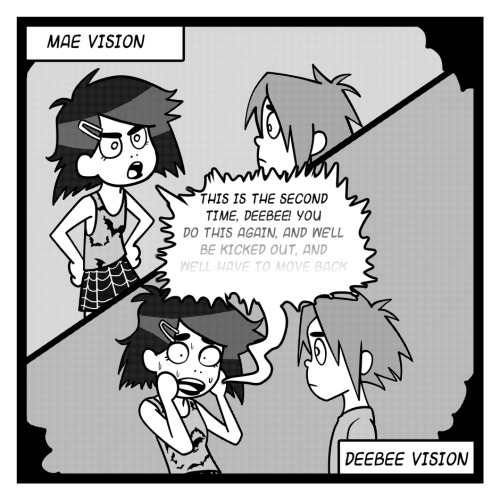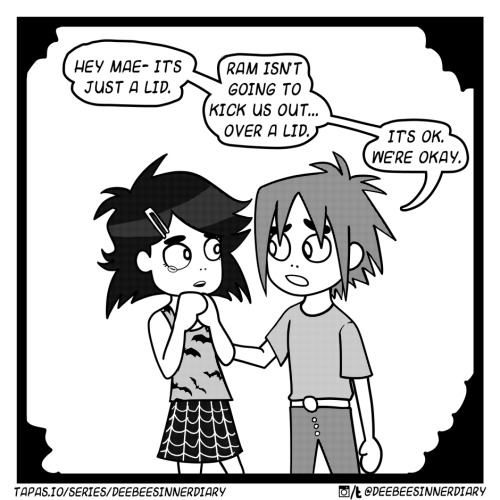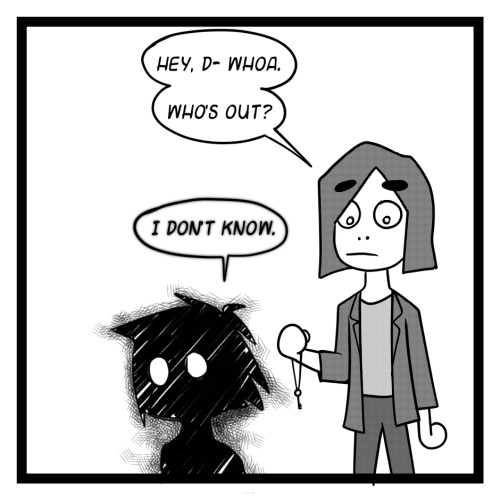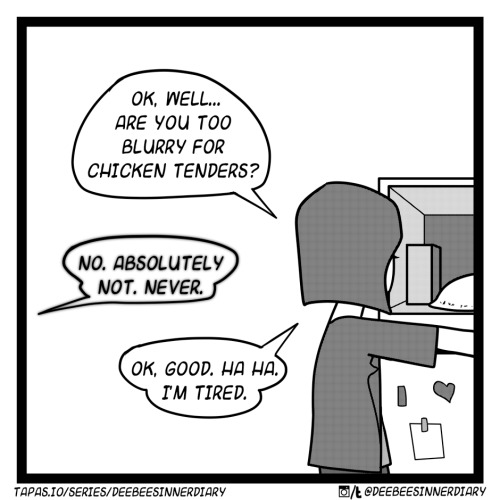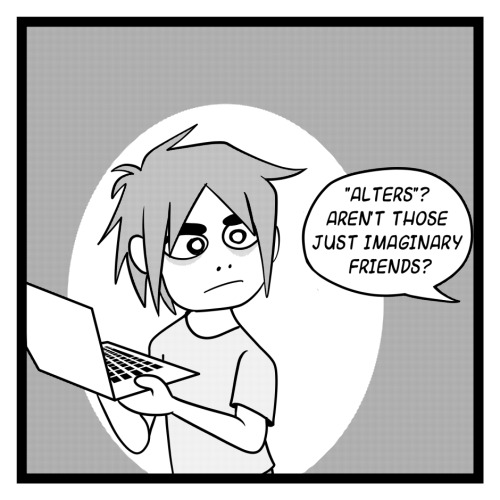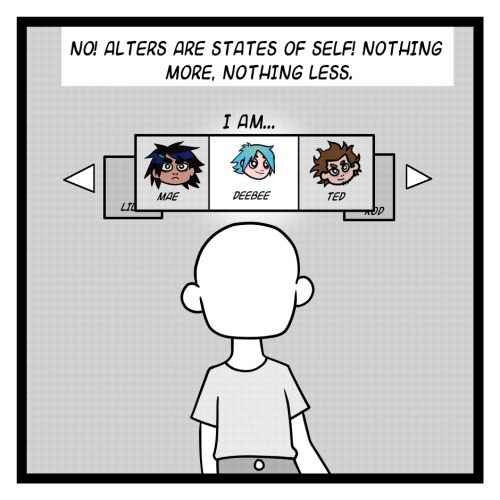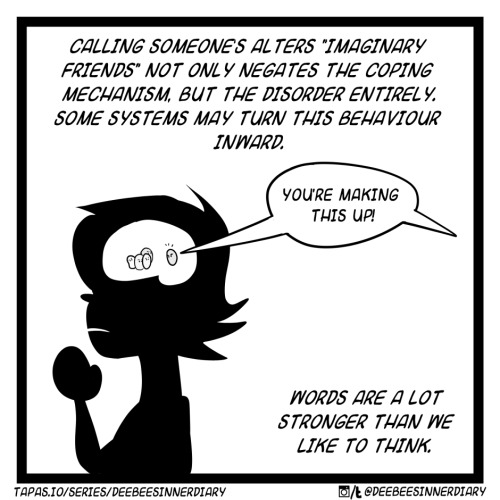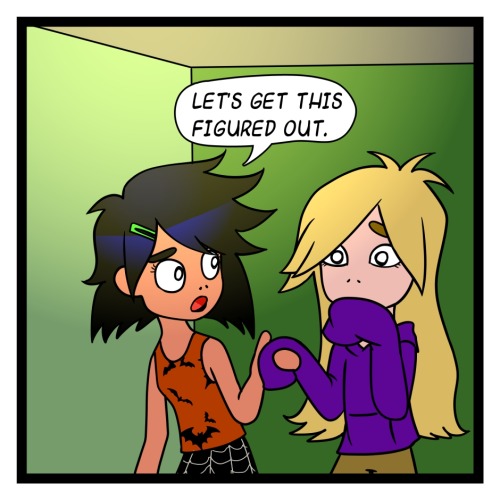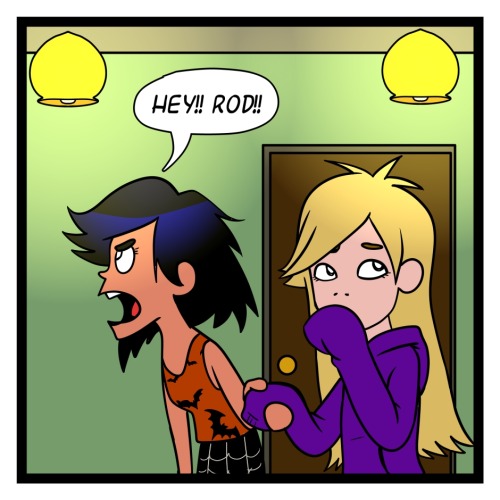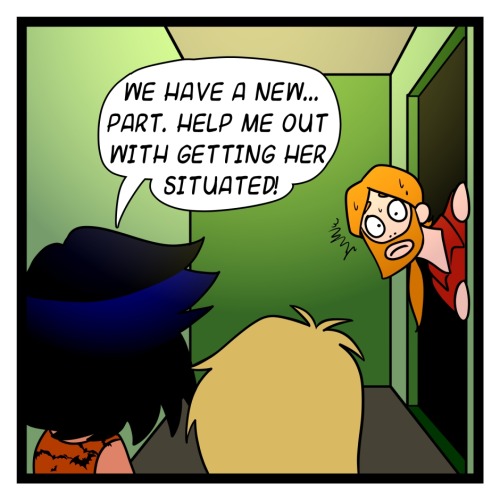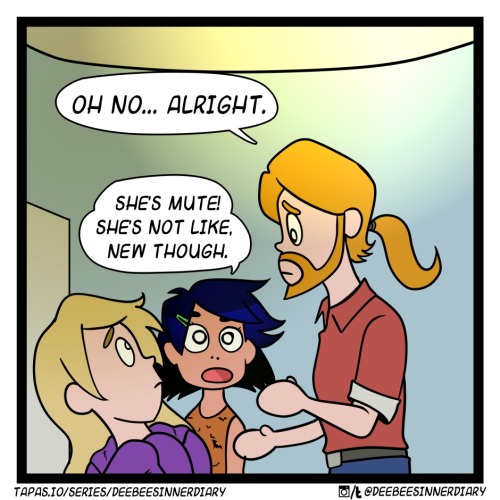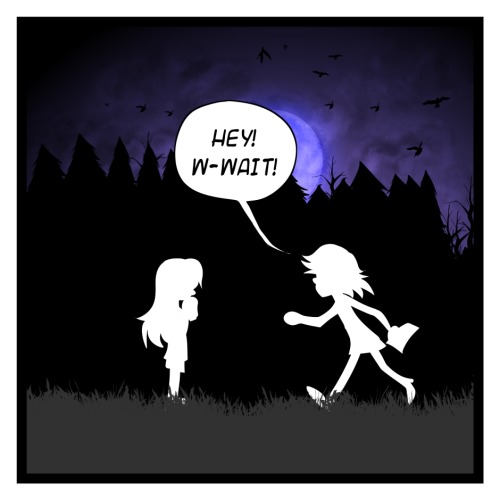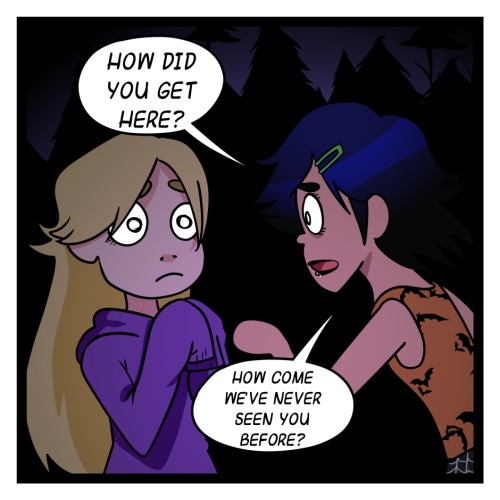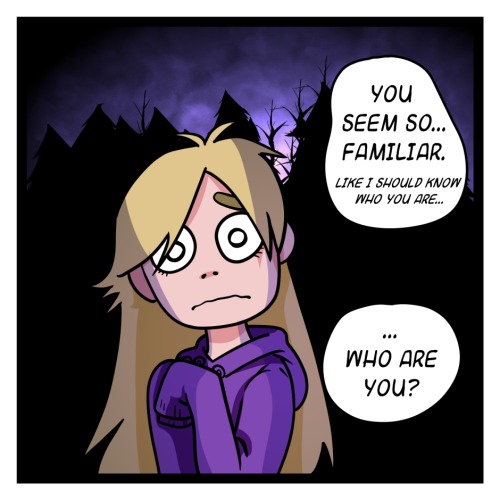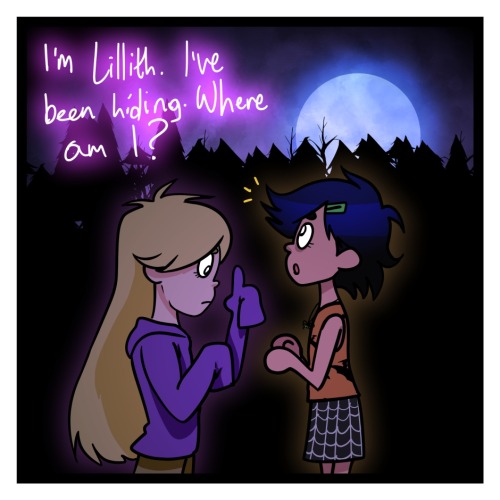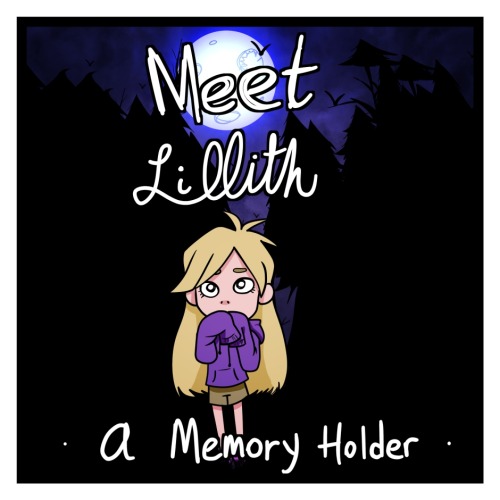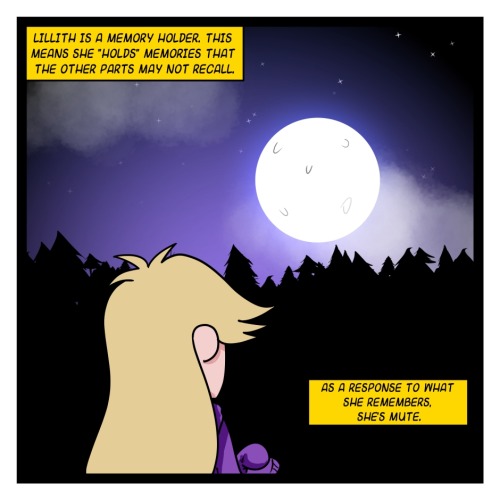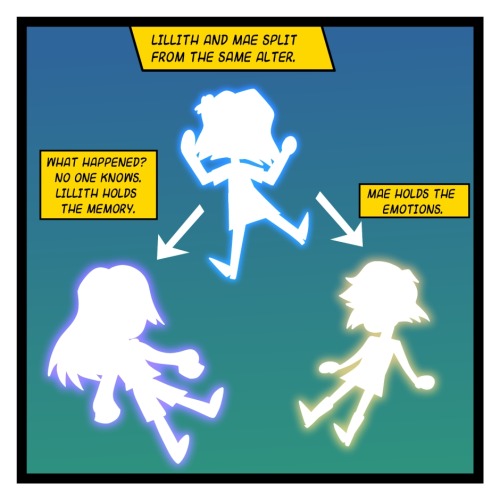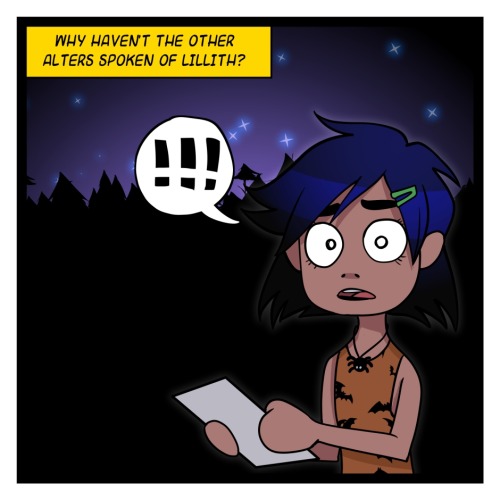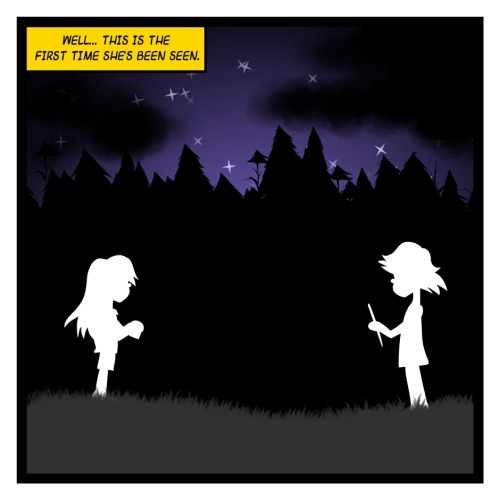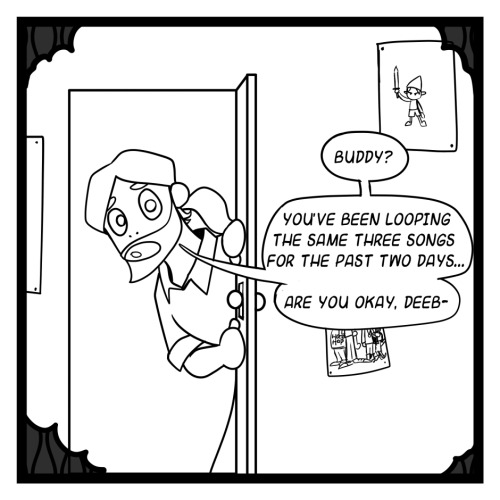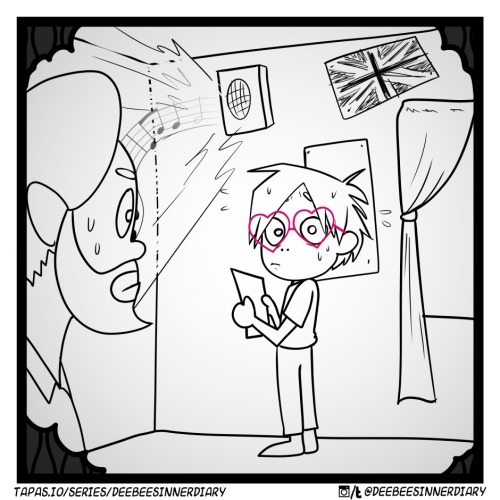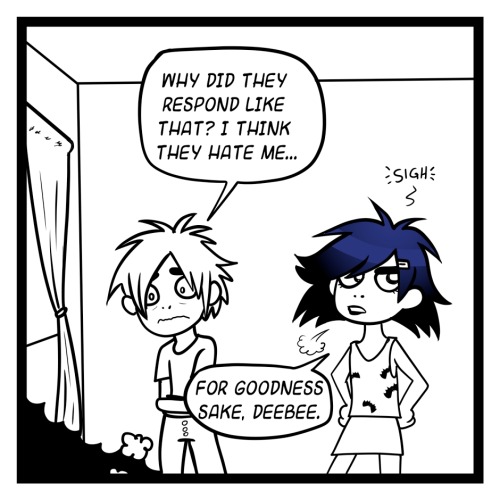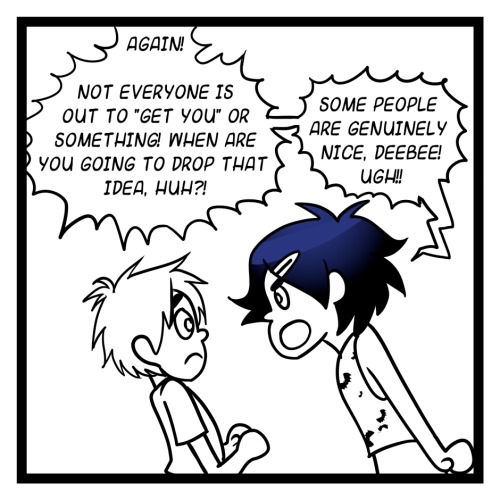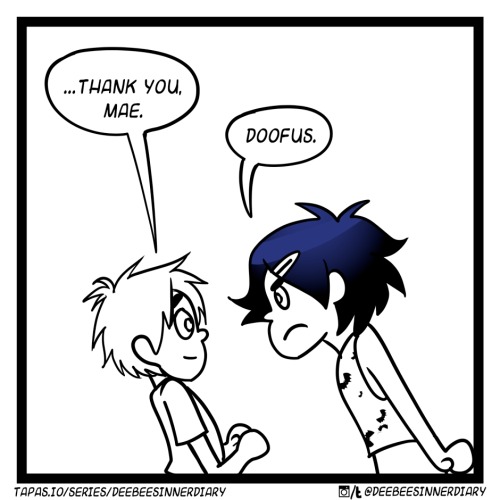#otherwise specified dissociative disorder
DID vs. OSDD: What’s the Difference, and Why Does It Matter?
Depending on which circles this post ends up in, many people who are reading this will know of Dissociative Identity Disorder, or DID. (If not, don’t worry, there will be a brief overview in a little bit!) However, lesser known to the layman is Otherwise Specified Dissociative Disorder (OSDD), a catch-all for dissociative disorders that don’t fit under any other named dissociative disorder. There are four types of OSDD, but I’ll be focusing on type 1 here. Read beneath the cut for in-depth info, sources, and some personal thoughts!
(Regardless of whether or not you have a dissociative disorder, I’d encourage you to reblog! Mental health awareness and education are crucial.)
Looking back through old system notebooks-
Handwriting
WTF our handwritings were so different?!?! It’s like in integrating we’ve evened things out mostly to be all equidistant from an average point but apparently as of this time two years ago we had a WILDLY vast array of handwritings. I literally saw one and went “What the hell Angela? No one would believe that was our writing if you passed that in to a professor.” Luckily she did NOT at any point attempt to pass anything in that she’d written out herself.
Also some of the littles had handwriting that looked straight up like an elementary school kid’s. I know for a fact that Jessi’s no longer looks like that when she is small. I have no idea about Julian’s handwriting when he is small— his hand writing when he’s a teenager is pretty neat and at body age or higher (which almost never happens) it’s freaking calligraphy level.
Now we still have our differences but it’s not like “physically how the hell did this all come from the same hand though” anymore.
-Octavian (15)
P.S. omg Lestat’s handwriting looked like legit fucking CALLIGRAPHY. Can I have it? Like I almost never use cursive, but if I did, can I dig that out of my brain somewhere and claim dibs?? Because it looks freaking AWESOME.
I am reading back through our blog to see changes in our functioning (like the not listed as consciously problematic or good in the system journal, just…. on average) over time as we have healed and Omfg I just…..
So many of these posts (from when our system had over 200 parts) are signed by or tagged as around five people at once?!?! Not even from the same couple of micro-subsystems!! And like all the main fronters fronted almost every day. We often switched after a number (a single digit number!) of minutes. And I don’t mean…. a bunch of people wandering near the front and negotiating who is going to take a turn and then all but one or two wander back off again and those one or two properly switch into the front. I mean SWITCH. Like not on purpose. And I don’t mean five people blurring and nobody being able to take front properly. I mean Five People Freaking Co-Conscious At Once. As a common occurrence. How- just- How were we OKAY with that?!? Sure, we didn’t remember any better (beyond “wow life didn’t used to be THIS confusing when the system was like 100 parts or less”) but also….. Okay no, no. The REAL thing that has me flabbergasted is that like….. We FUNCTIONED?! Somehow?!?! We went to work everyday like that. We went to school like that. We got shit done like that and appeared fine to most people. I don’t think we had ANY idea How the Fuck Impressive we were. Like at all. We were just like “whelp guess I have no choice”, but we did. We did have a choice. We could have given up - and I don’t even mean die. I mean we could have just resigned ourselves to the fate of never having a normal life and given in to the pressures from certain parts of the community to obsess over our disorder or to build our life around being sick. But we did not. We built our life around getting better. And we are so many miles away from that state of being that was the hell we lived in when we first started this blog. I just am so stunned to look back and see how far we’ve come. I am proud of us.
-Octavian (15) co-Julian (14)
Important Post About Inner Worlds
by Octavian & Belle
Hey guys, it’s ya boy, here to write another educational post that will probably piss off all the drama focused people in the DID community (both real systems and fake)! But I’ve been reflecting on this and realized just how unwell a lot of people I have known on here were about the topic and because of it so….. here it is.
The inner world is not like the headspace- it’s not a place you can GO. There is no being conscious within it. It’s a metaphor. A narrative meant to help you contextualize your individual experiences within the context of a group existence so that you can make some sense of the ways in which what you go through affects you and the ways in which what each of you do independently affects the rest of the system. It basically doesn’t exist for you unless you’re fronting. When you stop fronting you don’t go “into” your inner world. You go into your headspace and usually if you’re not partially co-conscious you just “go to sleep”. The inner world is a story. Not a mental location. Not in the way people talk about it on here so often. Yeah you can sometimes see events from your inner world while you’re fronting happening semi simultaneously- that’s because at that moment your brain needs to give you a way to use that metaphor to understand something. It doesn’t happen just the fuck because, at random. And you shouldn’t be experiencing it as just as real as, or in a way that distracts from, your external life.
It’s incredibly helpful to unravel the meaning of the narrative and extremely nuanced details can communicate more information than you might guess. BUT you should not be obsessing over it, trying to immerse yourself in it, or viewing it as some bizarre sort of alternate universe where your system gets to be separate people. That’s called maladaptive daydreaming, and not only can it be a maladaptive coping mechanism people use to enable their desire to detach from their life….. it can actually seriously impede your ability to even recognize on a real emotional level that you’re all parts of one whole mind.
So, please, when you see people here on tumblr or elsewhere online obsessing over their inner world and being super vivid about it in a way that isn’t focused on trying to untangle the meaning behind the narrative….. please don’t imitate them. Don’t think your legitimacy as a system or your awareness of your own mind depends on being like those people. They are the ones who aren’t dealing with it in a healthy way - whether they realize it yet or not (or would even be willing to accept it if you told them). Take care of yourselves. Stay grounded in your healing process. Always work toward increased sense of interconnectedness. Be safe.
Question for Followers
by Octavian (18) co-John
So I don’t know why this didn’t occur to us before, but I feel like it might be very productive to ask if there is anything you guys would be especially interested to see covered in upcoming posts— any topics of information you’re curious about but have not had much luck finding discussion of in the wider community. This can be just academic information that appears in some of those really costly books you’d love to have but can’t afford at the moment (for example Coping With Trauma Related Dissociation, a really extensive combination textbook/workbook for people coming to terms with a diagnosis of DID or OSDD-1 by Suzette Boone, Kathy Steele, and Onno Van der Hart). Or it could be experience-based insight on topics related to recovery and healing from trauma and fragmentation that we, as someone at the end stage of treatment for DID, can provide in a verified way that is not usually on offer in the online community.
We have so much we feel like we’ve got a duty to share the wealth of information for, but it’s really difficult to narrow it down because it’s been collected over, at this point, nearly two DECADES of research, study, and introspection. So whenever we sit down to write something up to share with you all, we have the tendency to almost start planning a whole damn text book. Which will be super useful when we have the time and opportunity to literally author one, but in the meantime causes a sort of indecision overload when it comes to making educational posts. Basically we end up only writing one if it’s come up a lot lately among our circle of friends, or if we’ve been contemplating the way our thoughts or awareness of it have evolved over the years for our own sake.
While that strategy is fine for us, in terms of our own intellectual expression, we’d like to really be serving the needs of the community as much as we can— that’s what we really made this blog for after all. So if there is anything that you guys are curious about or are in need of insight on from somebody who’s a step ahead of you in the recovery process - or HECK, even just a secondary perspective from somebody you’re at a similar point in recovery to….- we’d like to invite you to either reblog this with your questions/topic requests, or send us asks listing them, whichever one is more comfortable for you. We’re aware some people can’t be open about having DID/OSDD-1 on their blogs, so the reblog option may not be available to you. But we still want to give everyone who might read this blog regularly the same opportunity to contribute to the requests for content. (If you reblog, feel free to repeat topics others have already mentioned, so that we can get a sense of whether it’s something there’s a really wide interest in.)
These requests can apply to DID/OSDD-1, PTSD/C-PTSD, or dissociation and recovery generally. There’s no time frame on the offer to take content requests, because it isn’t for our own sake that we’re making this offer - so whether you come up with something in a day or a week or a month, or whenever feel free to use either of the methods above to send yours in. We can’t promise that we will always write and post an article the next day after receiving a request, but we definitely would use them as a way to inform our choices on the content we do create as well as to inspire us to produce more content, and we absolutely want to contribute to meeting the needs of the community as much as we can.
‘Making Sense’ and ‘Mattering’
So many times I have heard people -of all sorts, but especially trauma survivors say things like, “I wish I just made sense, like everyone else”, and “I don’t matter. I’m not important.” For years I wondered how. I had felt helpless plenty of times in my life but never pointless,confusing/confused yes but never non-sensical. And recently it has finally hit me that people can say things like that because they aren’t taking their own words literally enough. They aren’t thinking about where the phrases they use to dismiss themselves originate from or what they really mean.
Everything that physically exists is something that in some way our senses can detect. What we cannot see (like air) we can still feel when it moves as wind or by breathing it in. What we cannot touch (like light or sound) we can often still be touched by as heat and vibration. Our senses register reality. Reality is made of matter (be it solid, fluid, air, plasma, or some form of energy state).
You are also made of matter. Therefore you make sense. You can register your own existence.
Nothing that exists can be said to “not matter” in the philosophical sense either, because everything that exists at some point interacts with some other parts of All That Exists, and those interactions have actual measurable effect on the world.
Everything that is made of matter has the ability to affect everything else made of matter (and does so, unavoidably, just by being present) to varying degrees. The interactions in which different objects/people/etc that are made of matter interact with each other produce and determine all events that have ever, are currently, or will ever/could ever happen in the universe - from the dawn of time until the end of it. As a conscious being you can do that far more dynamically than an inanimate object. As an highly intelligent being (on the entire scale of life known on earth)…. you can even make active and somewhat informed choices about what you contribute to the shaping of the universe. So far our planet has no record of anything in the universe with more active ability to decide the fate of the cosmos than humanity ourselves - tiny and fragile though we may sometimes feel.
That sounds rather important to me.
-Jen (17)
NEW 30 Days of DID Challenge
This challenge is equally open to people with OSDD-1.
Day 1
What lead you to realize you were not a singlet? Did you start to come to this realization on your own, or did it take feedback of some kind from others around you to catalyze you into it? When was this in your life? [As many alters can answer this with as many different perspectives as your system likes.]
Day 2
When you first became aware of your system, did you already know about DID? If so how much, or how little? Did what you knew make it less intimidating, more intimidating, or both in different ways? If you did not know, what was your experience of eventually finding that information?
Day 3
If you have been officially diagnosed [by a professional, whether it is on record or off record], how did getting that diagnosis verified feel? What thoughts did it prompt in the different members of your system? Did getting a diagnosis play any role in what therapy options were made available to you? In your own private recovery work, did getting an official diagnosis smooth any difficulties?
Day 4
If you are officially diagnosed, how does having that diagnosis impact the struggle of denial? How does this compare to the difficulties of dealing with it prior to diagnosis? If you are not yet officially diagnosed, does this fact play any significant role in your grappling with denial? If so, how do you feel that having an official diagnosis would help?
Day 5
Do all parts of your system equally accept that you all exist and that the explanation for your [distinct] existence is DID? If not, what are the different levels of acceptance throughout your system? Do some people accept that the rest of the system exists but not that the explanation is fragmentation? If so, what other explanations do they cling to?
Day 6
When you first became truly aware of being a system, how was the [internal] communication between different parts of the system? Did some have better than others? If you are not still in that stage now, how has the communication level improved over time? What tricks and tools have helped to achieve that?
Day 7
Did you ever have to, or do you now, rely on external means of communication between any parts of the system? If so, is this out of an inability to communicate internally, or more a matter of preference/habit/record-keeping? Do you use a combination of internal and external? If so, when is each more prevalent?
Day 8
Do you journal to each other, or at least with the intent of each other seeing what’s written? Do you confide in each other, and ask one another’s opinions or advice on things? To what extent do you feel comfortable being emotionally vulnerable to one another? If you do not, what would make it easier for you?
Day 9
Does your system experience much effective co-consciousness [effective = co-fronting with coordination, co-consciousness without much blurring, and blending]? Are some parts of the system able to do this better or more easily than others? If you do, how does it benefit your functioning? If you don’t, how do you hope it would benefit you?
Day 10
Has your system learned how to cooperatively switch [switch at relatively free will, upon mutual agreement between the parts in question] yet? If not, does that sort of team work seem far off for your system? Why? If you have, what enabled you to get to this point? What advice would you have for those still struggling?
Day 11
If you have one of the forms of the disorder that includes informational/event-related amnesia, how pronounced has your experience of missing time been? Were you always aware of it or did you demonstrate “amnesia for your amnesia” as it’s sometimes put, where it is masked? If you were not, how was that symptom brought to your awareness?
Day 12
If you do have one of those forms of DID/OSDD-1, and have become aware of those gaps in memory occurring in your regular life, how do you feel about that? Do different people in the system who have large amounts of [event] amnesia feel different ways about it, or is there a consensus?
Day 13
To what extent are you aware of the emotional amnesia between different parts of the system? Do some people have more of an awaress (either while co-conscious, or while looking back) of how other people in the system feel about events? Do most of you find each other’s emotions baffling? To what extent does this disconnect impede your functioning or communication?
Day 14
For those who have been in the recovery process for a while, has your level of emotional amnesia (at least for people with whom one was co-conscious, in the case of systems with a default of event/informational amnesia) decreased as you’ve progressed through treatment? If so, what brought that about? What differences has it made to your ability to understand one another’s perspectives?
Day 15
For those who have DID or a form of OSDD-1 that includes the presence of amnesia as a default, but who have been in recovery for some time, has your general level of amnesia decreased as you have healed? What was it like to find that you could remember an increasing amount of what goes on even when you personally aren’t fronting? How does it feel now to look back and compare that to when you still dealt with event/informational amnesia in your everyday life?
Day 16
Do you, or have you ever, received therapy geared toward treating DID? If so, was it with someone who was formally a dissociation and/or trauma specialist? If you have worked with both specialists and non-specialists, which experience was more useful to you and why? If both were equally useful but in different ways, what were the pros and cons of each?
Day 17
If you have not received therapy geared specifically toward treating DID, have you received more general therapy? If so, which style or styles (e.g. CBT, DBT, etc) were used? [This can be answered by people who said yes above. Just specify that you did.] How did these help you in dealing with the difficulties of living with your trauma and with the challenges of DID?
Day 18
Aside from formal therapy, are there any support groups or other forms of organized counseling/healing (such as in your church, synagogue, mosque, or other spiritual congregation) that have provided you a safe place to work on your recovery? How were these things the same as formal therapy? How where they different?
Day 19
What has been your support network in your efforts toward recovery when it comes to friends? Have there been people with whom you’ve shared some of what you’ve gone through? If they were supportive, in what ways has having their support benefited you and made it possible for you to accomplish more in your recovery?
Day 20
Do/es your signicant other(s) -if applicable- know that you have DID? If so, do they support you in your recovery and healing work? Is there any way in which having that support from a partner impacts you more deeply or differently than having it from someone who has a different role in your life? If so, how, and why do you think that is?
Day 21
Do all of you agree about wanting treatment/therapy (wanting to work formally on recovery)? If not, who/how much of the system feels in favor of it, and why? Who/how much of the system feels opposed to it, and why? What do you think might help make those in the later category come around and become more willing to work on healing? If your system is not in that position now, but once was, what brought about the universal understanding that recovery had to be a priority?
Day 22
If you have any permanent body modifications (piercings, tattoos, other) or semi-permanent ones (hair dye, hair cuts, etc), were these agreed upon by the whole system, or did a limited number of people participate in those decisions? How does your system assess who gets to make or contribute to those decisions? Has there been any conflict over these topics in the past? If so, how did you end up coming to a resolution?
Day 23
Do you all take part in the same social circles? If not, how has that made forming close bonds more difficult? Are there any things it has made easier? When it comes to close friendships, do you find yourselves drawn to the same kinds of people? Does someone becoming close friends with one part of the system tend to act as a bridge for other parts of the system to join in on that bond? If the answers are different for general social circles vs specific close friends, why the distinction?
Day 24
Do you decide upon romantic partners (regardless of all having the same variety of interest in them) as a group? Does everyone in the system have to feel comfortable with a person on some level for dating or having a romantic relationship with that person to be on the table for any of you? If not, why not, and who then makes the decision? Do the different parts of the system who are old enough to and interested in dating/having romantic relationships do so in any sort of interconnected way? If you all share a partner or limited set of partners, how do you coordinate things in those relationships so that no one part of the system gets neglected?
Day 25
Do you all have a career or general field of study (or two) upon which the majority of you can agree? If not, is that largely because of individual indecisiveness or collective inability to come to a consensus? If you do have a career or field of study upon which you can agree, what is it, and how did you reach that decision?
Day 26
Do you have different handwritings/different variations on your handwriting? To what extent do these/have these differed? CAN you use each other’s handwriting (or a standardized one) if you want to? Did you notice that you had different writing styles before or after you became aware of each other? Did you notice it yourself or did someone have to point it out to you?
Day 27
Do the people in your system have the same accent/have the accent from where you grew up? If not, is there a wide array of accents or only a few exceptions? Have any differing accents caused you any difficulty by drawing unwanted external attention in the past? What about the pitch and timbre of different alters’ voices? How comfortable do various people in the system feel speaking in their own natural accents/voices externally?
Day 28
Different parts of a system frequently demonstrate different posture, body language, and/or gestures. Have you noticed any particular changes in those things between when one person is fronting and when another is? Are there people/groups of people who share similar mannerisms while another section of the system may be grouped together with a different set? Are there any mannerisms that tend to be fairly universal?
Day 29
Are you aware of any physical medical differences between alters? These might include (for reasons that range from metabolic fluctuations to conversion symptoms) different responses to allergens, tolerance levels to various substances, variations in eyesight or hearing, chronic pain levels, and more. Do any of you deal with an external physical disability or challenge that the rest of your system does not? What recommendations do you have for others in coping with such things?
Day 30
Are you aware of any psychological medical conditions that are present in one alter but not in the rest of the system? This does not apply to things that are neurological like schizophrenia or autism. Nor to things like major depression and PTSD, which are experienced by the entire system regardless of whether their symptoms are equally demonstrated by each part specifically. Instead it refers to things like anxiety disorders, PDs, OCD, etc. How do you cope with and support each other through dealing with those conditions? What advice do you have for other systems who might be facing the same?
Bonus:
What is one goal your system has for recovery over the course of the next year? It can be for any part of the system, for a specific issue or across the board, for something that is big picture or fine print- anything you feel like sharing.
Happy DID Awareness Day
I hope you all had a good day and that if any of you worked on efforts to raise awareness or combat the stigma regarding our disorder, that those efforts went successfully. In honor of DID Awareness Day this year, my system decided that we wanted to do something a little different - raise awareness within the DID/OSDD-1 community itself. We have seen lots of fun or amusing (and sometimes genuinely interesting, on an interpersonal level) posts of “System Asks” or writing prompts such as the “30 Days of DID” go around…. but it struck us that over the past few years, we have never really seen one that touched upon any of the questions that could truly help us all to learn from each other. So this year, our contribution to DID Awareness Day was the creation of a set of prompts of exactly that kind… to serve as a NEW 30 Days of DID (And OSDD-1). That will be posted shortly, and we encourage anybody who wants to take a shot at answering them to please tag it with “#new 30 Days of DID challenge”, to differentiate it from the previously existing set of prompts. Thank you, and enjoy!
-James (30), co-John
Caretaker & Protector Dynamics In Our System
This was written last night when I was age slid way down (15, which is a lower than I usually go without instantly becoming a small kid), and also was hella sleepy, but I figured some people might still find it interesting/educational if it prompts them to see the interconnectedness in their own systems.
I think it’s really interesting the way our caretaker/protector dynamic thing goes now cuz we have like literally more of those than we do of trauma holders (don’t get me wrong the rest of us each have our stuff to heal, to varying degrees, but not as a primary function of our roles in the system) but it’s because we’re not all responsible for taking care of or protecting the same people.
James is like the protector of last resort. In the sense that if somehow you manage to get him to front in protector mode, either you have like literally endangered our life (or the life of a person we consider friend or family), or you have fucked up monumentally in some other way. So he rarely ever does that. But when he does it is EFFECTIVE. As a caretaker he does almost the complete opposite. Aside from give advice if we ask him he basically just age slides and in the headspace transforms into an adorable baby panther cub and is like “hello, cute kitty here to give you love and make you smile!! ❤️❤️” (Tbh, that’s pretty darn effective too .) So he’s like the opposite extreme of each of those axes.
Then there are the gatekeepers of each subsystem, who also have both protector and caretaker roles. And also do it in different ways. They are the ones who are most versatile I think, with these. Cuz they are in charge of doing it each for their own subsystem but also now that I think of it kind for everyone. John does the mental/emotional caretaking for everyone. Jessica does it physically -makes sure we go to appointments, take meds, have clean clothes consistently, tells us to go the F to sleep [usually in the internal form of a small, extremely cute fox so we can’t easily say no - which I think is blackmail ] when it’s late etc. Then in terms of being protectors (and this is really weird to think about) she is sort of a physical protector?? In the sense she is like “yeah I will just straight up leave this dangerous scenario, peace ✌” and GO whereas some others might feel they could not leave. Whereas John is like that about emotional situations. Like “uh, sorry, no, you’re being an asshole. I don’t have to tolerate that. Get a therapist and get a clue.” Except you know they’re both way more eloquent than that and don’t always or even usually try to say anything beyond the minimum to be able to extricate us from whatever the dangerous situation is.
Finally you have me as just a protector and Remi as just a caretaker, and I think these are just for James. Obviously we are not the big guns. But because he IS it’s not like that’s what he needs. If he needs back up or someone to relieve him of duty, John and Jessica have him covered, but when it comes to like…. there being people who don’t have responsibilities to look after or look out for anyone else in the system in particular except him, that’s Remi and me.
So maybe John and Jessica protect and take care of the subsystems, James protects and takes care of them, and Remi and I protect and take care of him. And everybody has somebody. I like that…. Yeah
[/end of rambling observations]
If people find this sort of thing interesting/helpful to their own contemplations, I might end up writing more of them (on different patterns that relate to system mechanics).
-Jenn (29)
Treasure Box
When you lose your past you don’t just lose the scary bits. You lose it all. Because that’s how the physics of the brain work. So just because you can’t remember something - I mean not some specific thing but a period of time that is just blacked out months or years- that doesn’t mean whatever is behind that blackness is gone because it’s pure terror. It’s gone because you felt you couldn’t afford to remember it anymore. But sometimes, the things you feel you can least afford to remember are the ones you hold most dear, and therefore most want to protect.
And you send them away to keep them hidden- glowing and untarnished like they always were, so that none of what you are being put through currently can touch them, can taint them. Like so many other things you loved over your life have been. So that they can’t be used against you or twisted by abusers or ridiculed or used to stab you into submission.
Somewhere in there are all your Other Days. Not the ones that were terrifying, in which your life consisted of living for your tormentors, and only ever as they willed you to. Not those days- they were never yours at all. But the Other Days.
The days where you got to exist for your own sake, and have Thoughts- and feelings and hopes and dreams, without reprimand. Even if you had to steal yourself from everything and everyone, and run away in order to have them. Even if those days were really all comprised of separate moments, strewn far apart across the landscape of your memory. Even if they had to be sewn together like a patchwork quilt, lovingly and meticulously by hand, to make them into Days. To be moulded into a Story. To be forged into a truth. Even if it took all that…. you had them. You had them, and they were Yours, and they are always yours, by right. And they ARE still in there.
Of course those memories are all still in there, somewhere- They can’t just be deleted…… They can be lost, misplaced, even purposely hidden. But never gone.
And if you are brave and are willing to look at what makes up the dark curtain that separates you from your past, and see what It’s made of. And face whatever that is….. They will be given back to you.
-Juliette
Thoughts From Trauma Processing - On Causes of My Derealization
I have been processing a lot lately about the ways and reasons I, as a specific alter in our system [vs the system as a whole, in general] tend to dissociate at the times it occurs when there is no traumatic thing going on. And the realization I came to is that I spent a lot of my life being made to feel like I had no rightto be here. I often was treated like my presence itself was a burden on the people around me, like I was inconveniencing them just by existing. And when that had gone on long enough, well I didn’t exactly believe it, but I came to expect being treated that way so automatically that I guess I stopped registering so many aspects of my physical existence. If I didn’t feel that I was really anywhere to begin with, then there wasn’t anywhere for me to be exiled from, was there? But that strategy, no matter how well it worked to keep me from just hiding in the headspace all the time, and let me continue participating in life to some degree and helping my system….. It was fucking wrong. Not of me to do, but of the people who abused me to put me in a position of feeling it was the only resort left to me. In the trauma processing work I’ve recently been doing, I’ve come to understand that it robbed me of the literal awareness, to a degree greater and more constant than I’d ever thought, that I literally [physically] exist. That I have a right to bodily be here. As much as not only every other part of my system, but as much as every other person on Earth.
So if anybody reading this has felt the same way, or has had a bigger struggle with derealization than is explained by just wanting to be away from the bad/stressful/frightening/traumatic things…. I want to say for the record -in case nobody else has said it before- that you have a right to be here. You have a right to exist. You have a right to take up space and to use the time given to you. You are not burdening anybody by doing the things you want to do, or being the person you feel you really are drawn to being. Your freedom to fully engage in living is not something anybody else has any right whatsoever to impugn. It doesn’t matter who they are or what their job is or what they have (either only supposedly or even actually) done for you. The one thing a person can never ever owe as a debt to anybody else for anything is the price of their right to be present in their own body and connected to their own life.
And if you wonder how that can possibly be or how you can ever believe it when literally nobody has ever acted like they wanted you to be? Well then, please, consider that track record officially broken. I want you to be here. Not for some reason that benefits me specifically -Hell, I probably don’t even know more than a couple people reading this- and not for just the sake of your system not being stripped of the benefit of you all being as engaged in life as possible— But just because I believe that every human being that has ever lived has the ability to enrich the entire species, just by existing and having their own unique perspective to contribute to the perceptions of others. That’s how we all learn, as a collective. That applies to you, and it applies to me. And I hope others can reclaim that sense of right as I have.
Stay strong - because you’re doing brilliantly so far, even if you don’t realize it yet.
-John
DID/OSDD-1 Is NotMultiplicity
I don’t know who the fuck came up with calling it that, but it’s not multiplicity. Calling it such dramatically distorts matters and aids the anti-recovery agenda. It creates the impression that anyone who is a system [not HAS, nobody “HAS {implication: person doing having is not same as persons being had} a system”] has been multiplied from the normal amount a human brain can contain. That is a lie. It’s just as much a lie as endogenics believing THEY can be “multiplied” by spirits from imaginary universes jumping into their heads. But it has the ability to hurt the people who believe it instead of just everyone around them, as the endos’ ‘belief’ [which they don’t really believe but want you to think they do so that you cannot question their sanity without questioning your own].
Plurality is still fucking wrong too, though it is wrong in differently emphasized ways. First problem? Nobody refers to fractions as having been made plural. Where multiplicity implies multiplication from an original whole to many wholes, plurality implies to the average human mind two things. 1. That, again,there are multiple whole numbers involved. 2. This plurality existed from the beginning [vs. having multiplied from some original starting point]. See problems with word above, plus addition of implication that it could be naturally occurring and minus the absolute implication that it is a deviation from the original blueprint of one whole human.
There is only one number/calculatory term that has ever been used for DID/OSDD-1 that doesn’t obscure the nature of the disorder(s). That is fragmentation.You are not plural [multiple complete people in one body, possibly naturally occurring]. You are not multiple [multiple complete people in one body, somehow having made more human souls from the raw material found in originally only one].You are [multiple fractional people— still only people despite being less than a person because ‘person’ is still what their made of — having been prevented from ever assembling and then being thus susceptible to being further] FRAGMENTED.
THAT —Not just the implication from the second word that it was part of the set of PDs— is why the name of the disorder was changed from Multiple Personality Disorder. Once it was identified that this was NOT a personality disorder it became clear that there were not multiple anythings involved. If that weren’t the case, then it would have been called Multiple Identity Disorder. It’s not. Dissociate means to disconnect from. Dissociative Identity Disorder means The Disorder of Being Cut Off From Yourself. The disorder of having been cut apart.
What User Names Can Tell You About A Person’s State of Acceptance of DID/OSDD-1:
- Anybody who uses Plurality in their user name is probably endo [fake, and not even trying to hide it] or at least ‘pretendo’ [fake, either not trying to hide it or trying to say they have DID/OSDD-1], or has been strongly influenced by them. These people tend otherwise be in denial of the fact there was or ought ever be one person to have one body.
- Anybody who uses Multiplicity in their user name does not accept that their system makes one person and they are parts of the same psyche. This type of person is either somebody has been taken in by the massive anti-integration, anti-recovery campaign of propaganda….. or directly one of the people perpetrating it.
- Anybody who uses Fragmentation in their name probably: 1. Accepts that they are parts of one person that has been fractured. 2. Knows a bit about DID/OSDD-1 that did not come from the internet. 3. Actively supports recovery.
In honor of that, and in light of the fact the term system, which is the medically correct term and should be clearly only referring to people with DID/OSDD-1, has been stolen, hijacked, and then co-opted by people who would not know what being a dissociative Identity was like if you hit them in the face with all your memories….. We will be taking a stand against these trends and changing our blog URL from cosmos-system to fragmented-cosmos. I also am starting a tag for all of those who would like to be able to read about DID/OSDD-1 things without having to sift through a bunch of people denying or having been prevented from learning what the disorder actually is. This is #actuallyfragmented. Because we actuallyarefragmented. Have a nice day.
-Storm
About Integration and the Anti-Integration Agenda
I have heard many people -lately, and just always on the internet, unfortunately- asking questions about ‘integrative therapy’ as an option for the treatment of DID/OSDD-1, and nothing could be more frustrating to hear…. Because it’s such an indication of the profound smear campaign that several forces in the online community have launched against education, clarity, and truth about our disorder. And I have reached a point where I honestly cannot just endure standing here silently, pretending it is useless to provide people with reality and information that combats that.
There is no such thing as integrative therapy. There is just therapy. And if you do enough of it for long enough you will integrate. Integration just means the long process of healing your trauma. Because an integrated complete identity is what the human brain was quite literally designed to build from the moment you were born. It is not death, loss, or denial of anything. It is the construction of a consciousness and vehicle for experiencing life that holds ALL of the component abilities, skills, emotional potentials, and memories.
Since that is what a brain is designed to build, if by any means it can, that is exactly what will happen. The only thing stopping your brain right now is unaddressed and unhealed trauma. So, of course naturally when that is addressed, so too is your identity made whole finally. This is an incredibly slow and grueling process. It is also the most rewarding thing you can ever possibly do and the ONLY way to find out what it feels like to be fully alive. No one can force you to heal [not even yourself] but if anyone ever says a single other thing about integration than that? Either they’ve been a victim of the misinformation campaign that has cropped up these last few years so virulent it borders on mass brainwashing (and believe me, my system has had to heal more than enough literal brainwashing to know how close that comes to hitting the mark) that is designed to keep all of us from ever healing or people who are not really systems from having to fuck off and get a life……. OR they are quite literally the people purposely trying to instill said indoctrination into you, and they are LYING.
I never have been that forceful before in public statements, because I believed that no one would hear me over the screaming and bleating of hysterical sheep-in-wolves-clothing who do not want to admit —or, more importantly, let you admit that Truth— because it would cost them one or more things they value and covet. But you know what? I have decided I have faith in all of you. You deserve to see at least ONE person, anywhere, state this. There IS no door number three, for the options of who promotes anti-integration propaganda— there are just the perpetrators, and their victims. You can’t parrot propaganda as an ‘ignorant but innocent bystander’. If you’ve fallen prey to a piece of missinformation, enough so that you repeat it, you are one of the victims.
And to those who want to howl or lambast me for saying that? Go ahead. Do your best. Scream like an incoherent, rabid beast until your throats are raw. Reblog and respond with long virulently aggressive rants. Post as many links to the same three articles or the the blogs of the propoganda promoters and pretend it agrees with any book written about DID. Show pictures of out-of-context excerpts from those books. Even go ahead and send me all the hate you want in my ask box or personal messages. I don’t give a fuck, and I will not shut up. There is nothing any of you can do to me that can cost me anything at all. *laughs* What exactly the fuck do I have to lose? I don’t do all I have for the community for attention, popularity, or friendship. I don’t need support as an individual in the healing process from anyone here — I have a strong support network in real life, and I don’t lack any information I might be able to find there. The ugly truth is that, in the several yearsI have been here, I have quite literally never encountered ONE single fact about the disorders I hadn’t already known — most of it was presented far worse and more distortedly than I imagined it was possible to do. I don’t gain anything from posting on this blog except the potential to make a difference that brings healing to people who need it most. Anyone who would like to take thataway from me…. Well, too bad. You can’t get me to delete my blog, and you don’t have the ability to delete it yourself. Or you’d have done that a LONG long time ago.
ANYONE WHO WOULD LIKE TO SIGN A CONFESSION TO BEING ONE OF THE PERPETRATORS OF THIS MASS-INDOCTRINATION OF ANTI-RECOVERY PROPAGANDA, I FORMALLY INVITE YOU TO DO SO BY REBLOGGING THIS POST AND TRYING TO ATTACK ME, TRUTH AND SCIENCE.
-Samael
Education and Science in the DID/OSDD-1 Community - A Titanic Rant
Why the fuck do people obsess over false dichotomy and often devastate themselves because of it? It seems like in the DID/OSDD-1 community (like in much of well….. civilization right now), people [on average] have totally lost the ability to be discriminating. No, not as in being prejudiced; as in being able to tell the difference between things. And on the other hand it’s also (somehow simultaneously)as though they cannot comprehend the concept of moderation/mediation-of-principles/equilibrium. Nothing [as presented or addressed by those holding the status quo of this community] can ever be dynamic, everything must be static, nothing can ever be complex or in motion or relevant only by its appropriate relationship with something else. And the second someone tries to embrace the ability to comprehend complexity-of-interrelated-information, to acknowledge that facts (be they scientific or about the emotional reality of your own trauma and experiences) are not ever something that can be correctly interpreted in small numbers -let alone in isolation from every other fact in creation…..
They are then told (by a terrifyingly staggeringly large number of people, most of them completely unsolicited, and some quite violently)that no one can have a monopoly on the truth, that everyone must define (but create,they mean CREATE, as though it is optional or they can get one from Build-a-Fact) the Truth for themselves. That the cost of possessing the ability as a human being of being the one to define, describe, and develop the qualities of your psyche is the Faustian deal to accept [and then proceed to act upon that acceptance] that every single other thing in existence can only be said to be real by mutual CONSENT. And they refuse to consent, so you better shut up and fuck off, or bow down and get in life-ending-LINE. This is insanity. This is what your abusers wanted to turn you into. Don’t fucking LET them.
We do NOT have the right to deliniate reality. Human beings have no right whatsoever to change the fabric of space-time [even just —maybe ESPECIALLY just— within the confines of what they will and will not acknowledge about it] whenever something is uncomfortable to them. It is NOT our “freedom of interpretation” that makes us unique. It is our perspective. Do you know what freedom of interpretation means [rather than inclination toward specializing in specific emphases]? It means “when we are wrong, because the tool [our minds] that goes about evaluating facts and rendering best hypotheses for the implications those facts have when taken as a bigger picture is unique, so are our mistakes.” Never EVER tell someone to be quiet because they speak a fact you do not like or have not heard yet or wish they hadn’t told you. Tell someone to be quiet only when they speak a postulation (as though it were a fact) that you have already tested and obtained results that strongly indicate its falsehood. Then explain to them what you learned. They will then be able to investigate it for themselves if they like, which if you are correct will yield similar results.
The mass-indoctrination of idea that the mental sciences are not just as concrete as any other is ridiculous and an attempt to do what people have ALWAYS done to the mentally ill— shut them up and write them off. Your emotions are chemically and electrically measurable as events and physical states in your brain. It is possible for a scientist to measure and diagram for you PRECISELY which parts of the activity of your brain indicate something about your humanity and which indicate something about your individuality as a specific human being. When science says “theory” it means “this may not be finished yet”, not “this might be totally wrong and we can’t know for sure, ever, no matter what, so feel free to ignore it when you want!”
•The theory of evolution is a theory and not a fact not because scientists have not obtained sufficient data to confirm or deny that evolution is occuring, or that its basic fundamental relationships are not readily testable and reliably consistent. It is still a theory because nobody has finished mapping it yet.
•The theory of gravity is a theory and not a fact notbecause scientists cannot confirm gravity exists and affects absolutely all matter according to a set of consistent [math] functions…… It’s a theory because despite having a quantity of data about the phenomenon sufficiently large to fall into the category of “larger than the human brain can calculate” [due to being able to, unlike for the process of evolution] make direct physical observation of it and its rules for affecting matter unassisted and in fact continue doing so nearly constantly throughout our physical existence]… nobody has yet figured out why the fuck it works, given what the rest of Physics is doing. But it does. Anytime you’re uncertain about that, just close your eyes and ask your body “are you sure gravity is real, and also non-subjective/unaffected in its definition by my perception or consideration of it?” It will give you a reliable answer.
•And finally structural dissociation is a theory and not a fact NOT because there might be some totally unrelated and undiscovered alternative explanation [“or even MANY! varying from person to person!” As some people love to suggest], NOTbecause nobody can know for sure how things work in the brain (no the mind is not separate from the brain, anymore than your life [the biological qualities-process-fact] can be said to exist independently of your body as a whole) and thus can only ever make guesses about shadows on a wall…………… But just literally because the scientists that put it forth as their contribution to the body of knowledge known as the Definition of Humanity knew damn well that it’s not even remotely DONE YET. That there is so much more complexity it can grow to include the explanations for all of the nuances of.
If it is the key to the beginnings to a mathematics for the phenomenon of identity development [of identity itself, one day] in humanity then think of it this way: How dare you try to obstruct anybody else from believing they have a right to utilize it when it is offered— and what does it make you in the epic saga of the human quest for self-understanding, if you’re the one getting in the face the person who first offered humanity fire and threatening them with torment and exile if they complete their attempt to bestow it. Ask yourself too, what would have happened to the very notion of sanity itself if when the ancestors of Homo sapiens first began communicating their shared experiences, no one had been cooperative enough to create a standardized set of sounds-for-thoughts [which came to be called language]? Where would this planet be? Where would we be? …..Would we still be here? Would we ever have been here at all?
What if when the first people to ever describe who they were and what experiences of their life shaped them into that explained that there is this thing called emotion that despite our differences is a shared experience across our species…… people had told them that it was ridiculous, rude, or unfair or even evil to try to force people to admit that we all can experience the same emotions and that a given emotion can be said to exist and have definite qualities and consistently describable observable impacts. That you were persecuting and oppressing them by telling them it was unfair, deceptive, and harmful for them to use the word heartbreak when they meant resentment, or the word disappointment when they meant jealousy, or the words ‘deal with’ when they meant ‘agree never to deal with’, or the word love when they meant fear……..
And then realize that that’s EXACTLY what gaslighting is. And stop. Fucking. Doing it. To anyone. EVER again. Even to yourselves.
-River (15)
Growing up in a household that traumatized me taught me I don’t deserve nice things, and I am so incredibly grateful to the beloved friends who helped me unlearn that and teach myself that I do deserve nice things. Sometimes I look around my room now with my wonderful mattress that doesn’t exacerbate my chronic back/neck pain, my furniture that has all matching wood and aesthetics, my lamps and curtain rods that match each other, and just everything that the room is decorated with…… and just am almost stunned that something so beautiful is mine. It’s not even expensive, any of it- most of it’s from target or amazon (or in the case of some treasures, from an antiques/used items shop) but it’s all beautiful. And it’s all mine. It all suits me. I picked it. I worked for the money that purchased it. I bought it. Nobody can take it away from me. It’s my property. No one can damage it without facing legal consequences. Nobody can use it to threaten me. Nobody can blackmail me by threatening to take it away or destroy it. My things are mine and they are safe, and I have known what it means to feel that I am safe. And no matter what anybody does to me now, nobody can ever take that knowledge away from me.
-River (23)
I didn’t front for a while and now I’m like… what am I supposed to do here? I forgot how to live man





I’m coming back slowly.




The original therapist comic got deleted because it aged like old milk.
However after a few sessions with my new therapist, I’ve been feeling much more comfortable with talking about my system. Instead of hearing “They’re just voices” or “I know nothing about this so let’s talk about something else,” I’ve been met with actual respect and positive talk about this. I’m so happy.





I do this constantly. I can’t help it!





Almost missed my HRT appointment doing this haha.







Not sure if other systems have this experience, but sometimes it’s not the persecutory alter who’s preaching the Denial Lecture. I think everyone in my system has gone through it at least once.




Mae figures out they can more than one set of pronouns to describe themself.
!! This is not about kin. This is a term used in dissociative disorders. I am not in the kin community. Replies/Reblogs turning this into a “kin” thing will be blocked. This is a post on the formation of these types of alters in a person with DID/OSDD !!
Talking about that though is a whole different can of worms. Anyway! I said to myself I wouldn’t do many comics that “teach” about DID because I’m no professional and can only speak from experience. But in this case, I have a lot of experience! That doesn’t mean I’m a doctor though so my word is not gospel. This is a long post because this is a more complicated topic.
Introjects (aka Introjected parts) are alters who have pulled their identity from an outside source. This can be a person, a mythical creature, a character, and sometimes even a historical figure. It all depends on what was going on at the time of this new part forming. They are not literally these characters/creatures/people. They are the mind’s interpretation meant to keep the person with DID/OSDD safe/soothed.
Everyone introjects. Humans naturally mimic others to survive. In people who do not have DID/OSDD, they can introject ideas and behaviours and integrate them into their sense of self. No problem.
But for people with dissociative disorders, that ability to integrate something new into our “self” (“selves” might be a better word?) is stunted. That failure to integrate is why the disorder exists to begin with. Integration, like introjection, happens almost daily in everyone. Integration is when someone incorporates information into their sense of self and personal history. When you dissociate, that’s kind of like a failure to integrate.
Having said that, introjects stem from ideas and behaviours that did not fully integrate into a person with DID/OSDD’s personal history and sense of self. They may have the same name, appearance, (interpreted) behaviour, and whatnot. At the same time, they may deviate from their introjected identity and become their own person. That might be how they heal.
More information below the cut? I’m sorry I wrote a book haha.
——-
To reiterate introjecting, this is a defence mechanism centered around mimicking. One example of it happening in everyone would be like a young girl disciplining her brother just like how her mom does when mom isn’t around. That young girl introjected from her mom.
In a more turbulent household, an introject may form in someone with DID that took their identity from an abuser. In fact, I’d say that’s pretty common.
Suppose a child with DID/OSDD is told by their parent “You messed this up. You can’t do anything right!” That child introjects that reaction, and may split into new fragments or alters based on the stress building up. One of those new alters will copy that voice and can be triggered out by whatever may remind that alter of that reaction. It could be the actions of the person with DID/OSDD, or just that pressure of that stressor from the abuser happening again, just to name a few. Later, that person with DID/OSDD moves on to school or the workplace and eventually someone like a teacher or boss tells them they made a small error on an assignment. It’s very likely that this introjected part of their abusive parent will get triggered forward and begin tearing the person with DID/OSDD down by either repeating what the parent said, or worse.
Suddenly, the pen is absolutely mightier than the sword.
People with DID/OSDD may be inclined to shun this introjected alter because they see this part as their abuser. It can be hard for them to perhaps see that this introject of an abuser is a piece of the same person, just like everyone else in the system. They’re hurting, badly. And this process isn’t the easiest for systems to go through solely from the nature of it.
Fictional introjects work somewhat in the same vein. A stressor or trauma occurs, and the person with DID/OSDD splits. In this case, the person may be like “I wish I was strong like Superman!” or “I wish a hero was here to protect me!” and that belief may cause the brain to introject from what it believes is “strong” or “protective”. Examples of this in my system can be found in my author intro post. Introjects in my system didn’t come from “This person is strong”, but they did come a belief similar to “If I’m x like the abuser wants, then this will stop and I’ll be safe.” Again, they are not literally the character. Their personality may exaggerate certain traits and understate others to build a soothing or protective alter, because accuracy to the source is most likely not what will help the person with DID/OSDD survive.
Hopefully this makes sense! Again, people with DID/OSDD are encouraged to add input. I’d prefer if the input comes from only people with DID/OSDD, though.
Post link
It’s tough to widdle this one down into 4 panels, but I figured I’d write about this one as well. I think “Guessing who’s out” could be a comic in its own right really.
I as a system do not expect people to always know who’s out! That’s not the point of this.
In my experience (and this may vary for others), if you think there’s been a switch, making sure the one in the front is okay before delving into who’s out is priority. That way if something was a trigger, the alter fronting can be grounded before handling the topic.
Systems are always encouraged to add input.
Post link
Just a little reminder that persecutor alters deserve the same amount of love and respect as a caretaker alter or protector alter. A lot of time I’ve heard of people just absolutely dogpiling their persecutor alters and I hate getting on a soapbox, but I think I need to for this one: A system of alters are all fragments of one whole individual. When you think about your alters, they are alternate pieces of one person and the host is an alter too. Be kind to those alternate pieces of the one person you and other alters are a part of. You deserve the self-love and they do too.
Post link
Unfortunately with DID/OSDD being so stigmatised by both the psychology industry and by the media, every (out) system has probably heard this at one point or another. Hopefully next time it happens you can send this to them.
Alters are not imaginary friends. We are not doing this for fun and games. Dissociative disorders stem from terrible, terrible events that no child should’ve witnessed, let alone repeatedly. Alters are dissociated states of self, with or without amnesia depending on the disorder. They are not “people” we outwardly interact with. They, including the host, are all parts of the same person. Furthermore, having alters and amnesia, an inability to distinguish oneself, etc is not something that’s considered fun.
Okay I’m off my soapbox now. Thank you for reading.
Post link
Lillith meets Roderick, who is worried about how another part has come about, even if Lillith has been around for a while now. It’s the fact that there’s parts in hiding that worry Roderick.
Post link
I’m not too certain how to caption this, except that I don’t know how far I’ll go with this. I’ll be back too black and white soon.
Lillith is mute, but what she wants to say can be “read” by the others in their headspace.
Post link
Meet Lillith: A Memory Holder Alter.
Sometimes in dissociative systems, an alter will have the role of holding memories so the others don’t remember. These parts tend to be emotional, or may reflect their feelings. Sometimes a memory holder is mute, much like Lillith, because what they’ve experienced is unspeakable. Other times (such as in my system), memory holders may appear non-human because they felt dehumanised by the event.
Lillith loves pastel gothic stuff, and she likes to keep herself wrapped up in a big hoodie. It keeps her feeling safe.
Also: As March 2021 rolls around (actually today is the 1 year mark of the United States going into lockdown), trauma “anniversaries” are real, regardless of who we are. Please be easy on yourself.
As always, if systems have anything they’d like to add, feel free to. There are many ways plurality is experienced.
Post link
Been listening to nothing but Elton John lately. The real MVP is Ram, who’s been putting up with this for the past couple days.

Post link
Sometimes persecutors know just what to say. Mae might be a bit hard with her words, but sometimes things like this need to be said bluntly to Deebee.
Based on stuff with my system. I’ve learned to interpret the wording as constructive in their own way.
Post link
happy alters can have hard times also - “manufactured emotions”
i feel like this should be obvious but i never see it being talked about n only see like posts about how positive parts have it “easy” even tho thats not always the case
DID n OSDD are trauma disorders, not all positive parts still feel like their emotions are real. by this i mean some alters emotions feel manufactured/brain maid just the be the one bringing positivity even for the hardest times.
social alters, mood boosters, happiness holders, soothers & comforts etc. can feel negative emotions but some might feel like when theyre having a bad mood the brain made happiness always is next to them making any actual emotions feel very numb. positive parts might sometimes feel like they cannot experience actual emotions other than manufactured positivity
also to be there always comforting, bringing positivity and helping in social situations when alters who struggle with it can get stressful n not be always easy. severe childhood trauma is never that easy to cope with no matter what ur role as a system member is ,n being the one having to bring the joy n calmness after bad flashbacks isnt a fun job
all alters have it hard no matter what their role is, respect even when a alter who is stereotypically seen as always a joyful part has also a hard time as an alter <3
small inspo from this post to write my thoughts as an comfort social alter n my experience with manufactured emotions
-emma

